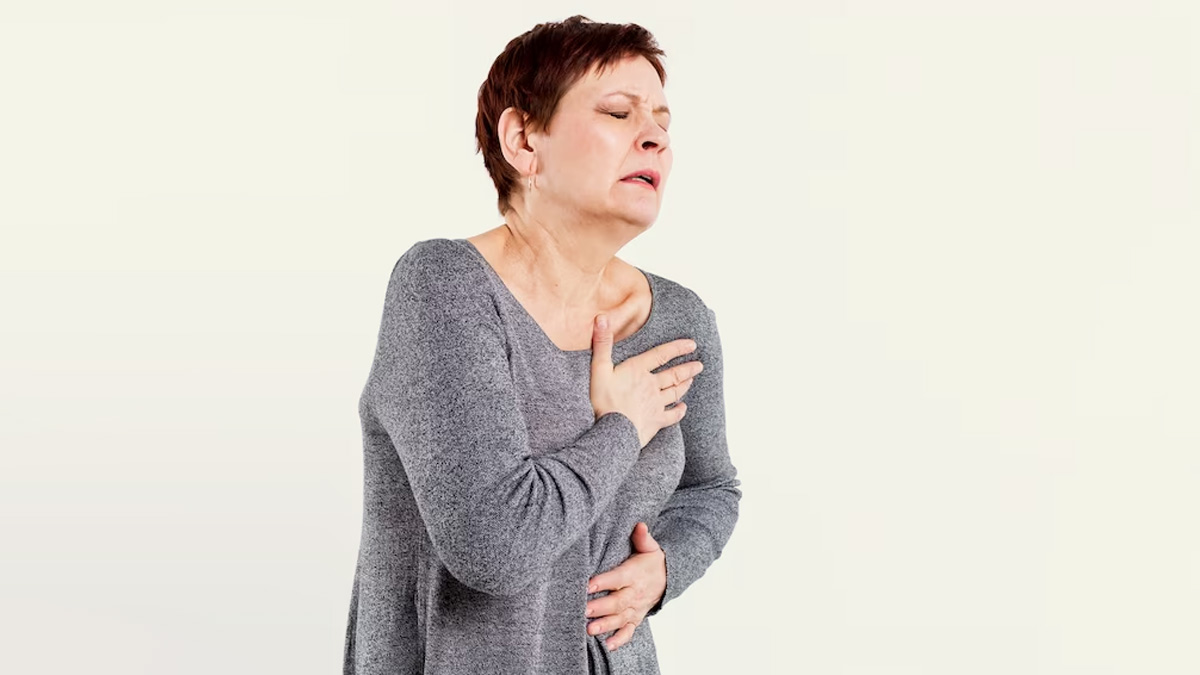
As winter sets in, it's essential to pay attention to heart health, particularly the rhythm of our hearts. Abnormal heart rhythm, or arrhythmia, can manifest in various ways, and the colder months may exacerbate certain symptoms. Here are seven symptoms of abnormal heart rhythm to be aware of during the colder months.
Table of Content:-
Palpitations
According to Dr Ajay Kaul, Chairman of Cardiovascular Sciences at Fortis Hospital in Noida, anxiety can cause palpitations. However, if you become nervous for no apparent reason or for small matters, you may be experiencing an abnormal case.
Palpitations are sensations of rapid, fluttering, or irregular heartbeats. In winter, factors like cold weather and holiday-related stress can contribute to palpitations. If you experience persistent or severe palpitations, it's essential to consult a healthcare professional for further evaluation.

Shortness of Breath
Feeling breathless, especially during physical activity, can be a sign of an irregular heart rhythm. Cold air can constrict blood vessels and increase the workload on the heart, potentially exacerbating symptoms in individuals with pre-existing heart conditions.
Also read: Art Therapy Can Help Tackle Noncommunicable Diseases Like Heart Diseases And Cancer: WHO Report
Fatigue
Winter fatigue is common, but excessive tiredness that persists despite adequate rest may indicate an irregular heart rhythm. The heart works harder in colder temperatures to maintain body warmth, and this additional strain can be challenging for those with arrhythmias.
Dizziness or Lightheadedness
Feeling dizzy or lightheaded, especially when standing up, can be a symptom of arrhythmia. In winter, dehydration and changes in blood pressure due to cold weather may contribute to these sensations, requiring careful monitoring.
Chest Discomfort
Chest pain or discomfort is a serious symptom that should never be ignored. Winter conditions, such as exposure to cold air can trigger chest pain in individuals with abnormal heart rhythms.
Fainting Spells
As per the Texas Heart Institute Journal, Arrhythmias can sometimes lead to fainting or syncope. Winter-related factors like low temperatures and dehydration can increase the risk of fainting episodes. If you or someone you know experiences fainting, seek medical attention promptly.
Preventive Measures and Seeking Help
- Stay Warm: Dress in layers to protect yourself from the cold and reduce the strain on your heart.
- Stay Hydrated: Dehydration can exacerbate heart-related symptoms, so ensure you're drinking enough water, even in colder weather.
- Manage Stress: Practise stress-reducing techniques such as meditation, deep breathing, or yoga to maintain mental well-being.
- Regular Check-ups: If you have a history of heart conditions, ensure regular check-ups with your healthcare provider, especially before the winter season.
Symptoms of abnormal heart rhythm and their potential exacerbation in winter is crucial for maintaining heart health. If you experience any of these symptoms, especially if they are persistent or severe, seek medical attention promptly. Your heart's rhythm is a vital aspect of your overall well-being, and being attuned to its signals can help you enjoy a healthy and active winter season.
Also watch this video
Read Next
Pollution and Winter Is a Deadly Combination For Heart Patients, Doctors Share Prevention Tips
How we keep this article up to date:
We work with experts and keep a close eye on the latest in health and wellness. Whenever there is a new research or helpful information, we update our articles with accurate and useful advice.
Current Version